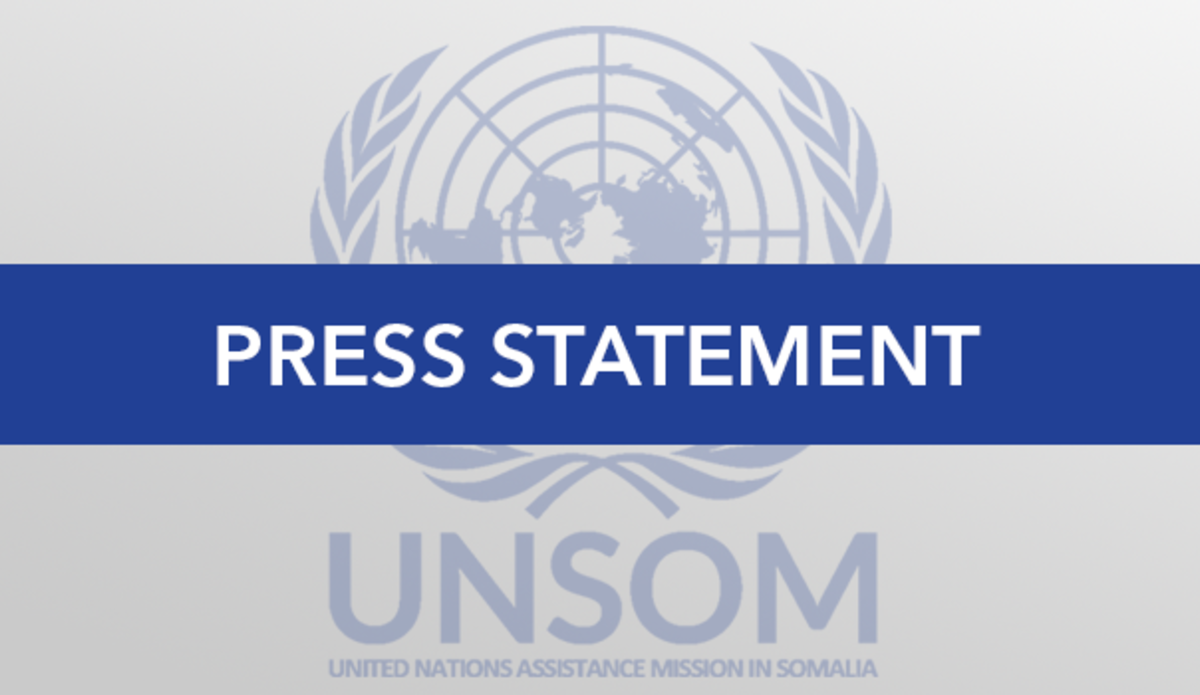Annual 16-Day campaign of activism against gender-based violence is launched in Somalia
PRESS STATEMENT 13/2018
Mogadishu – Launching the ‘16 Days of Activism against Gender-Based Violence’ in Somalia today, the United Nations called on all sectors of Somali society to take concrete steps to help bring an end to such violence.
“Somalia has made significant strides to prevent and criminalize sexual offences and gender-based violence. At the federal level, the Council of Ministers passed the Sexual Offices Bill in May this year, a positive step in addressing sexual violence and strengthening the provision of support to survivors,” the UN Secretary-General’s Deputy Special Representative for Somalia, Peter de Clercq, said today to mark the campaign’s launch in the capital, Mogadishu.
“But abuses such as sexual and gender-based violence remain a pervasive feature of armed conflict and violence in Somalia,” Mr. de Clercq added. “Today, we call on the Federal Government of Somalia, the Federal Member States and all other national and international actors to play a vital role in creating awareness, providing legal and medical aid, and facilitating access to services for those who are the most vulnerable.”
The ‘16 Days of Activism against Gender-Based Violence’ is a global campaign which takes place every year and aims to raise awareness on the need to end violence against women and girls. The campaign runs from 25 November, which is the International Day for the Elimination of Violence against Women, to 10 December, when International Human Rights Day is observed.
Somalia’s progress has included improvements in legal protection for women and girls in the federal member state of Puntland through the enactment of sexual offences legislation in November 2016. The Sexual Offences Bill that was approved by federal cabinet ministers earlier this year awaits endorsement by the federal parliament.
However, Somalia’s complex challenges that encompass recurring humanitarian crises and the persistence of armed conflict have hindered greater achievements in the areas of women’s empowerment and gender equality. Out of the 4.2 million persons in need of humanitarian assistance in Somalia, about half are women and girls. Humanitarian actors estimate that 2.6 million people are internally displaced, with women and girls in displaced communities more susceptible to gender-based violence than those living in stable communities.
Available evidence suggests that physical assault continues to be the most commonly reported type of gender-based violence in the country, followed by sexual assault and rape. Those categorires account for 64 per cent and nine per cent of all such reported incidents, respectively.
Mr. de Clercq noted that more than 90 per cent of women and girls in Somalia have undergone female genital mutilation. The continuing incidence of child and forced marriages further deepens the cycle of poverty for women and girls.
“To establish a society free from violence against women and girls, Somalia needs to prioritise social, economic and political empowerment of women and girls,” he said. “It has to improve the enrolment and retention of girls in formal education, eliminate female genital mutilation, stop early and forced marriage, and promote women’s equal participation in governance.”
The UN official also stated that the world body remains committed to supporting the government and people of Somalia in their efforts to ensure that Somali women and girls can enjoy lives free from violence of all forms.
 UN
UN





